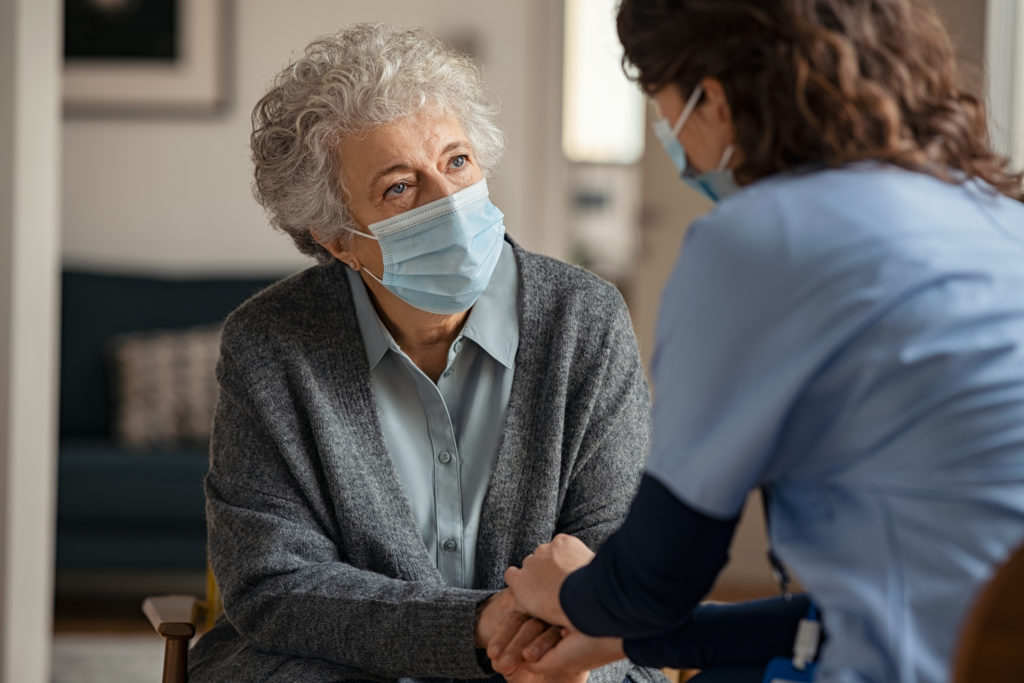Senior Health Updates

What’s happening in healthy aging and senior care research?
Brain Scientists Offer Tips for Communication While Masked
Since the pandemic began, wearing face masks has been vital for protecting vulnerable older adults against COVID-19. Older adults and people with dementia are at high risk of serious illness from the virus. “Doing without masks to protect against infection is not an option,” said Matthias Schroeter, leader of a research team from the Max Planck Institute for Human Cognitive and Brain Sciences in Germany. But communicating while wearing a mask takes some extra effort. Schroeter says that older adults, especially those with memory loss, perceive emotions more from looking at the speaker’s mouth than their eyes—especially emotions like happiness, sadness and anger.
Schroeter says that to overcome this difficulty, newer transparent face masks can be helpful, as can telemedicine appointments where masks aren’t necessary. And he advises that during in-person conversations, “more attention should be paid to conducting conversations more explicitly. Instead of subtle facial expressions, one should rely more on clear language and gestures.” Read more about the study here.
Study Finds Eating Alone is Less Healthy
We’ve long known that seniors who eat alone may not have much of an appetite. Now, a new study from the North American Menopause Society shows that dining solo can also lead to the opposite problem! The research team studied 600 older women and found that those who ate alone had a higher risk of cardiovascular disease (CVD). There were several reasons behind this: People who eat alone can experience depression, which is bad for the heart. Also, the researchers said, “When eating alone, people tend to eat faster, which often leads to increases in body mass index, waist circumference, blood pressure, and blood lipid levels, all of which can increase the risk of metabolic syndrome and CVD.” Read more about the study here.
More people have been eating alone lately, and not only due to social distancing. Seniors who live at home often eat alone, perhaps relying on unhealthy junk food. Older adults in senior living communities have the advantage of dining with others, where residents enjoy healthy meals and snacks amidst companionship that encourages healthier eating.
Ways That Senior Brains Excel
Most of us are at least a little worried about our memory and thinking abilities as we grow older. And it’s true that a percentage of us will develop Alzheimer’s disease or a related disorder in our later years. Even older adults who are in good cognitive shape notice age-related changes—for example, that they can’t remember facts and names as easily, or pick up a new skill as quickly.
However, says the National Institutes of Health (NIH), in certain aspects, older brains outperform their younger counterparts. “People have widely assumed that attention and executive functions decline with age,” said Dr. Michael Ullman of Georgetown University. “But the results from our large study indicate that critical elements of these abilities actually improve during aging, likely because we simply practice these skills throughout our life.” In particular, older people are best at paying attention to things and ignoring distractions. And many other studies demonstrate that seniors score higher in the quality called “wisdom”—the accumulation of a lifetime of knowledge, and the ability to make good use of it. You can find the NIH study here.
Source: IlluminAge

